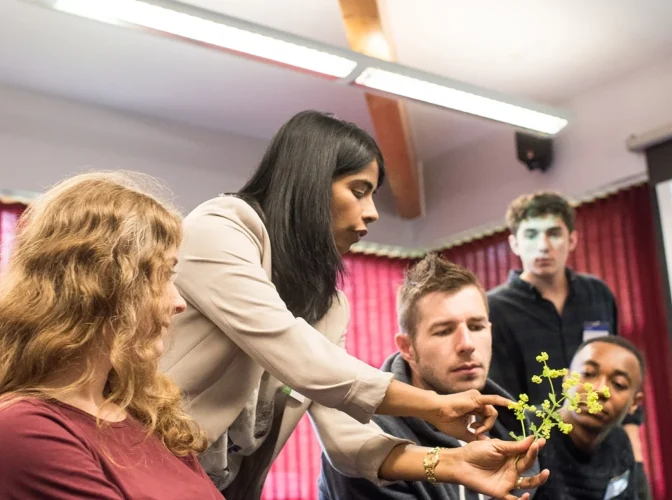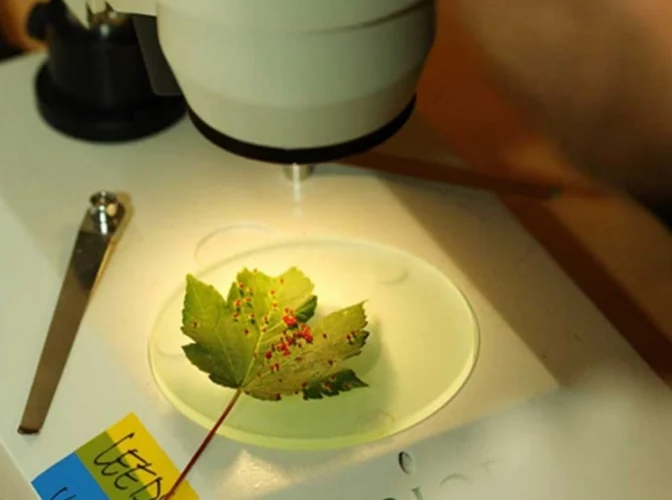
Inspiring young plant scientists
The Gatsby Plant Science Summer School (GPSEP) aims to introduce the excitement and potential of plant science to 80 first-year undergraduates selected from 28 research-intensive UK Universities. It was established in 2005 following a recommendation by the Plant Science Advisors and is now run as part of the Higher Education project within the Gatsby Plant Science Education Programme (GPSEP) in Cambridge.
Students are selected from a range of degree programmes in bioscience including biology, biochemistry, genetics, cell biology, and molecular biology, as well as plant science, and many appreciate the broader view of science given, finding applications of their discipline within almost all of the talks.

A week of inspiring content
The annual week-long residential summer school takes place in a relaxed, rural setting in Yorkshire in which students learn new ways to see plants in their environment and to use plants in research. Through hands-on exercises and talks from international research leaders, students discover how plant science can offer world-leading curiosity-driven research as well as help tackle global challenges such as food security, energy needs and climate change and are encouraged to continue their interest by taking second-year plant science courses at their universities.
The practical classes promote inquiry-based learning through exercises that also have an element of “wow, that’s amazing”, whether from the biology itself or the method of study e.g. computer modelling of flower development. Other practicals show real application; for example in pathology, students find and observe diseased plants in nearby surroundings and run diagnostic tests that scientists use in the field.
The results
The summer school has gained an international reputation and can attract the highest calibre of speaker. Tutorials and a Q&A session with the speaker follow the lectures and are given by academics from UK universities and research organisations. Students report that these help them build confidence to learn through questioning.
The summer school offers careers sessions in which successful plant scientists now in a range of professions share their biographies with the undergraduates and help them build confidence in selecting and taking opportunities to gain experience.
The Summer School has changed my perception of plant science in a positive way; having this opportunity has given me the insight I needed to find out where plant science can take me.
The GPSEP management team
Dan Jenkins
Head of GPSEPDr Celia Knight
Academic AdvisorDr Charlotte Carroll
Project Manager (Higher Education)Claire Pennycuick
Project Manager (Higher Education)Dr Russell Arnott
Project Manager (Higher Education)Jon Brosnan
Project Coordinator (Higher Education)
The future of GPSEP
The school has developed over recent years to be an effective forum to bring together tutors, students, employers, school teachers and others passionate about broadening access to plant science education. Summer school alumni now give talks on their own PhD research and we look forward to involving more alumni in the future to report their successes in plant science.
The wider remit of the Higher Education project within GPSEP is to nurture bright bioscience students from post-16 education through to undergraduate and postgraduate study; supporting them to become the next generation of leading plant science researchers.
Work to support this includes providing grants to Network Universities to deliver inspiring plant science outreach session ‘Masterclasses’, online engagement through the IntoBiology website, and supporting summer school alumni to set up plant science societies within their institutions.